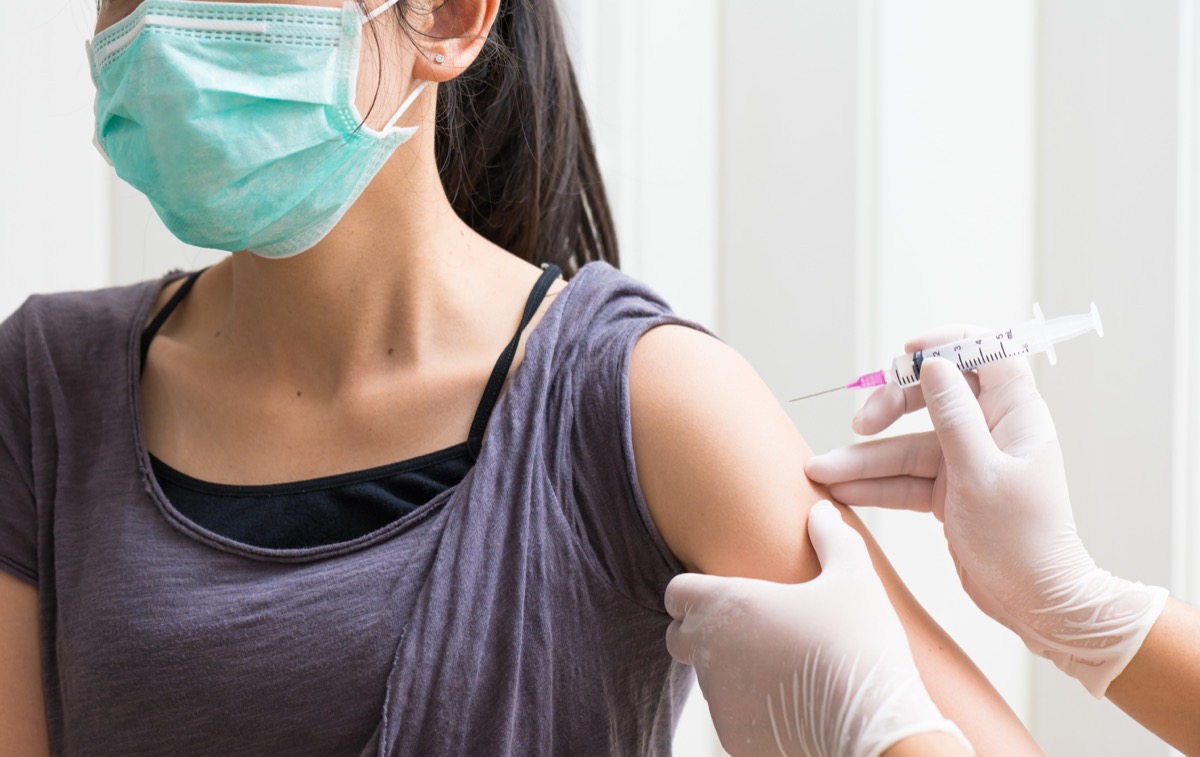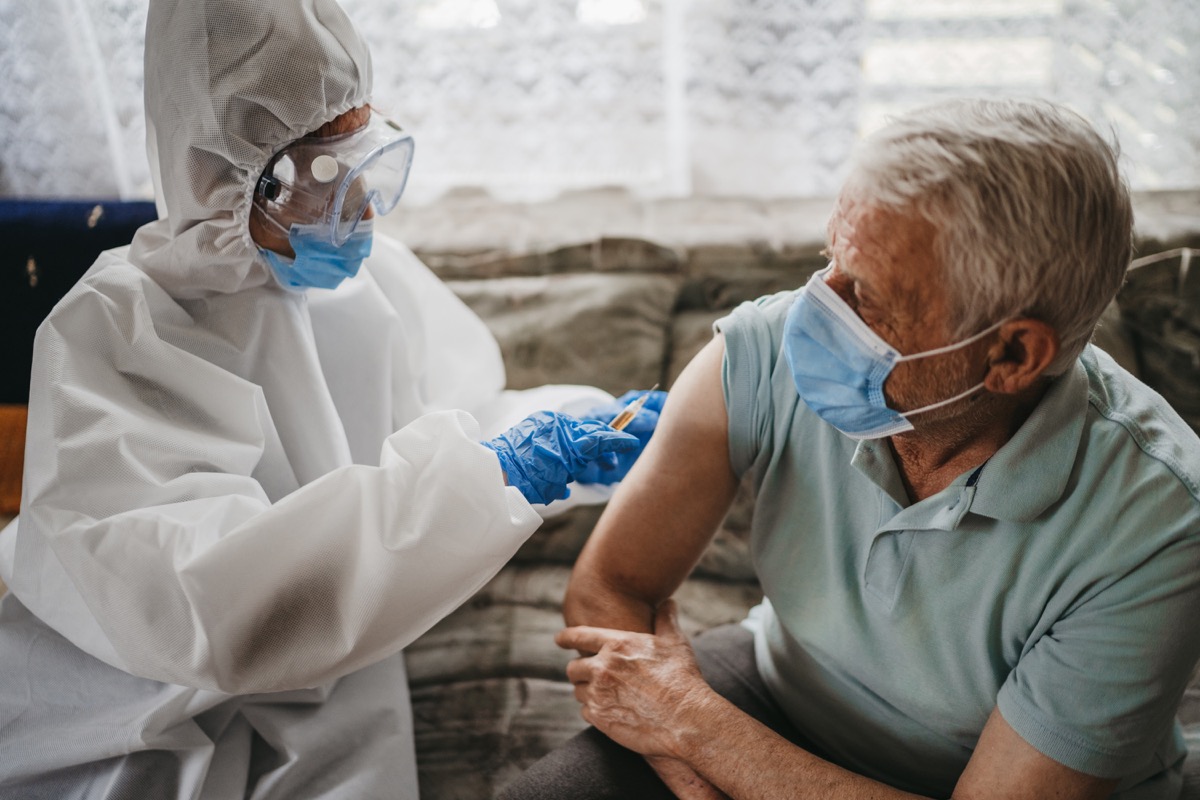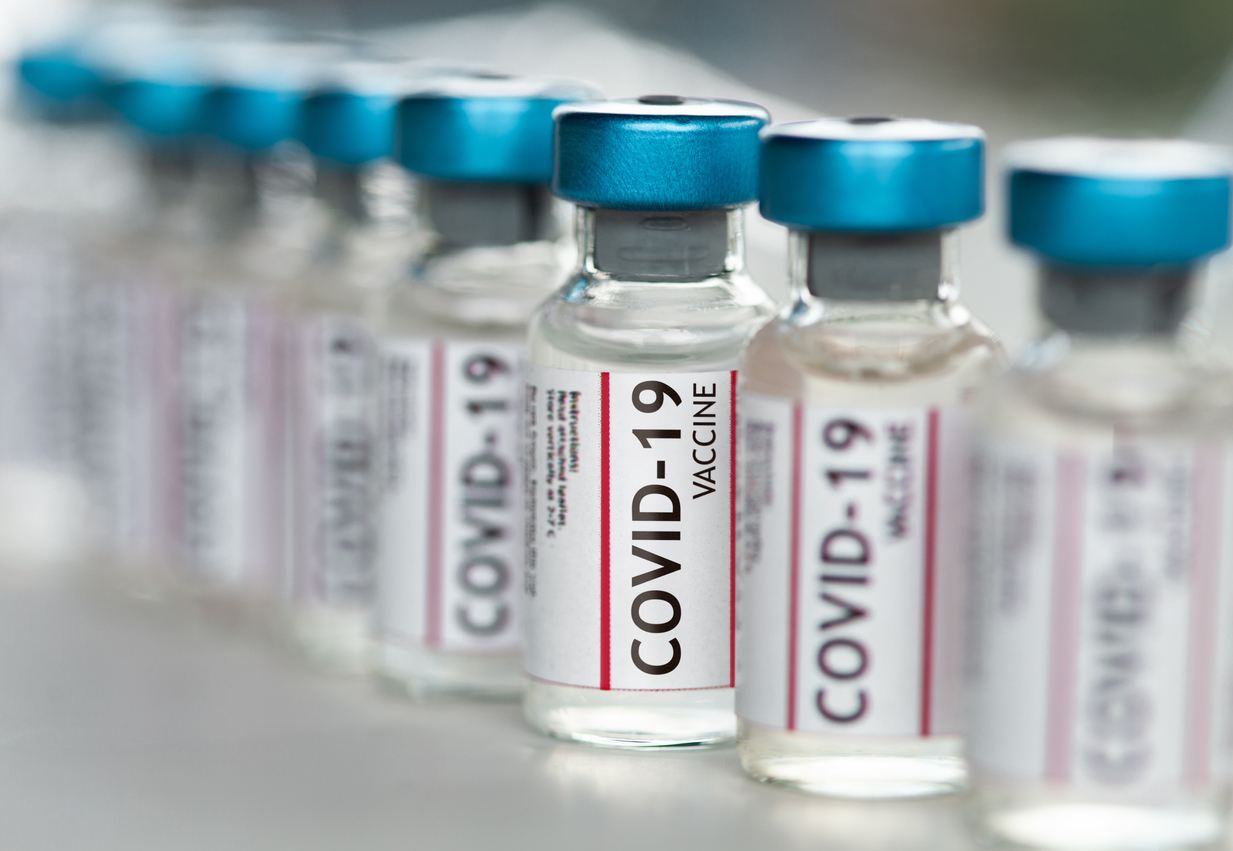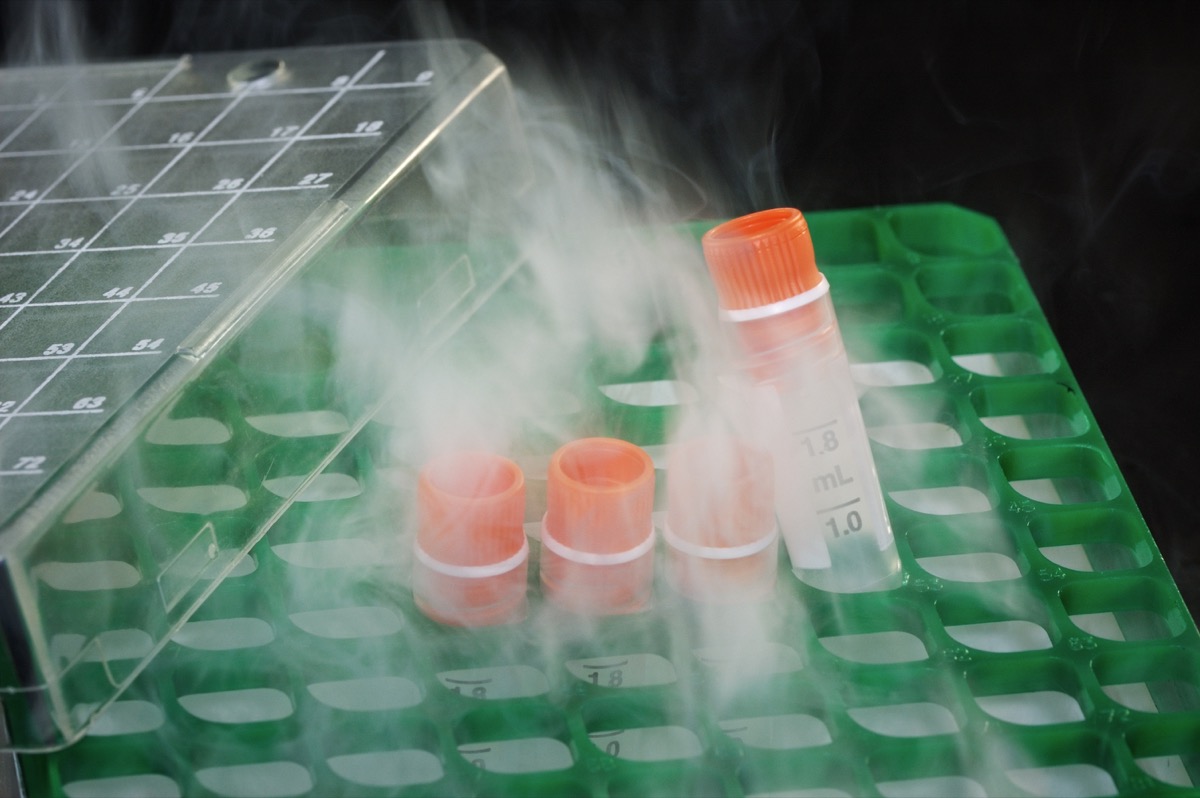Unlike the Moderna and Pfizer vaccines, Johnson & Johnson’s inoculation is a single-dose vaccine, which means its distribution could enable more people to be fully vaccinated sooner. However, the results of the clinical trial show that the vaccine is significantly less effective than the two vaccines currently being administered in the U.S. To find out what this means in terms of your protection, read on, and for more important vaccine updates, beware that If You’re Over 65, You Shouldn’t Get This New Vaccine Yet, Experts Warn. On Jan. 29, Johnson & Johnson shared an analysis of its phase three trial results. According to a statement from the company, the vaccine is “66 percent effective overall at preventing moderate to severe COVID-19, 28 days after vaccination.” However, the vaccine demonstrated higher efficacy in preventing severe illness. Johnson & Johnson’s inoculation is “85 percent effective overall in preventing severe disease and demonstrated complete protection against COVID-19 related hospitalization and death as of day 28.” That’s less effective than the Moderna and Pfizer vaccines, which are 94 and 95 percent effective at preventing symptomatic COVID-19, respectively, but that doesn’t mean it should be ruled out in the fight against the virus. The yearly flu vaccine, for example, is typically just 40 to 60 percent effective, according to the Centers for Disease Control and Prevention (CDC), but it’s still a recommended precaution against the influenza virus. And for more up-to-date COVID information delivered straight to your inbox, sign up for our daily newsletter. Infectious disease expert Michael Osterholm, PhD, told CNN on Jan. 29 that he assesses the Johnson & Johnson vaccine to be as effective as those from Pfizer and Moderna. “These are really, in my mind, three almost equivalent vaccines,” said Osterholm.ae0fcc31ae342fd3a1346ebb1f342fcb Osterholm noted that the results from the Johnson & Johnson trial only indicate the short-term immune response to the vaccine, explaining that the response can grow stronger with time. “Protection got better the farther you got out from the vaccination,” explained Osterholm. “If we had followed this several more months, it might have been an equal, if not superior, vaccine to what we’re seeing with Moderna and Pfizer.” And for one side effect you could see post-shot, check out The Rare COVID Vaccine Side Effect Doctors Want You to Prepare For. Johnson & Johnson’s statement noted that, while the vaccine proved to be 72 percent effective in the U.S., it was only found to be 57 percent effective in South Africa, where nearly 95 percent of COVID cases stem from the South African strain of the virus. With cases of the South African COVID strain recently popping up in the U.S., this could potentially affect the efficacy of the vaccine stateside, too, as time goes on. For more information on the South African COVID strain, check out why Moderna’s Chief Medical Officer Just Gave This Upsetting Update. The Johnson & Johnson vaccine comes in a single dose, unlike the Pfizer and Moderna vaccines. The single dose allows more people to become fully vaccinated sooner than would be possible with two-dose vaccines, which require three to four weeks to elapse between the first and second shots, depending on which vaccine you get. Additionally, the Johnson & Johnson vaccine doesn’t need to be kept at the ultra-low temperatures required to ensure the safety of the Pfizer and Moderna vaccines. The Johnson & Johnson vaccine can be stored for at least three months in a refrigerator kept between 36 degrees Fahrenheit and 46 degrees Fahrenheit. This mitigates the number of vaccines that could go to waste if not used quickly enough and affords greater vaccine access to parts of the country where specialty vaccine storage equipment may be in short supply. “We can keep it in our refrigerators longer. We don’t have to worry about the extreme temperature issues,” said Osterholm. “For many clinics out there, this is going to be the ideal vaccine to have. One dose. Stable vaccine.” And before you head to your vaccine appointment, check out The 2 Things You Need to Do Before Getting Vaccinated, Study Says. While Johnson & Johnson’s vaccine still has to be approved for use by the U.S. Food and Drug Administration (FDA), the company expressed optimism that it would be on the market soon. According to Johnson & Johnson’s statement, the company “intends to file for U.S. Emergency Use Authorization (EUA) in early February and expects to have product available to ship immediately following authorization.” And if you want to play it safe after your shot, find out why Dr. Fauci Says Doing This After Getting Vaccinated Is a Huge Mistake.




